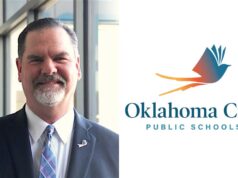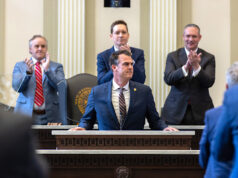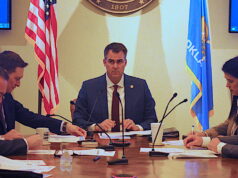
Regarding an effort by the Trump administration to expand charter schools, The Oklahoman’s Ben Felder reports, “A total of $16.5 million will be funneled to charter schools over the next five years, which could help open or expand 25 charter schools.” Two of the five Oklahoma charters that will receive $600,000 this year are chartered by local districts.
Two of the Oklahoma grants will assist the opening of charters in Seminole and Norman, Oklahoma. They were chartered over the objections of local school systems, and they are unlikely to enroll many poor students. The two locally chartered Oklahoma City schools, combined, have a low-income rate that is less than half of the OKCPS rate. They also serve about half as many special-education students as the district.
Oklahoma City has been fortunate that its locally grown charters have benefited their own students without doing extreme harm to poorer kids. It’s hard to see a path for charter expansion, however, that doesn’t do far more harm than good.
Background on latter-day charter expansion
Charter openings took off during the Obama administration, when it and edu-philanthropists poured hundreds of millions of dollars into charters with the hope that they would serve relatively more poor kids.
Because of the lack of transparency, it is hard to say how much of the nearly $9 billion in the Obama administration’s Race to the Top, school-improvement grants and billions of dollars of venture philanthropy were invested in charters. As the pro-charter Fordham Institute acknowledges, however, “… the Race to the Top era usually saw an annual net gain of 360–380 more charters.” By 2016–17, however, “… that increase dropped to roughly 120.”
Notes from a leaked memo
The Oklahoma Public School Resource Center, the local entity managing the grant’s distribution, is funded by the Walton Family Foundation as well as other edu-philanthropists. The best way to understand how the Walton Foundation seeks to rebrand charters can be found in a recently leaked memo. The Walton-funded analysis explained their defeat in the Massachusetts campaign to lift the cap on charter schools. Even though charter supporters outspent their opponents by $10 million, they lost because:
Personal conversations with friends, family and neighbors who were teachers ultimately convinced many voters to oppose Question 2 because it would harm traditional public schools and leave students behind.
The memo recommends relationship-building with legislative leaders (without suggesting conversations with practitioners opposed to them). It advises, “Advocates should test (emphasis added) owning the progressive mantle on education reform and charters: this is about social justice, civil rights, and giving kids a chance.” The implication is that the progressive spin is reserved for liberal states.
The memo also illustrates contempt for teachers’ unions. It recommended a “full assessment of the opposition” in a way that couple imply a desire for more opposition research to define opponents — like Massachusetts union president Barbara Madeloni. It calls her “an ideologue” and quotes an in-depth interview as calling Madeloni “a rabble rousing, outsider, activist, leftist … a very ideological and uncompromising person.”
The memo recommends, “Seek out opportunities to appease opponents.” In contrast to the reward-and-punish corporate-reform agenda of the past generation, a “win-win situation” should be created by, “Giving unions and traditional public schools additional funding — either legislatively or as part of a ballot initiative.”
Old-fashioned partisan fight over charter expansion
Local charters can’t be blamed for the venom spewed by their donors and charter-management organizations. Nor can they be held responsible for the politics of destruction that national reform efforts have funded.
The good news, I believe, is that more Democrats are realizing that the basic charter model makes it impossible for choice schools to retain their fair share poor and more expensive-to-educate students. For better or worse, conservative school reformers are returning to their base and abandoning the pretext that charters can be a tool for closing the achievement gap.
We’re probably heading toward an old-fashioned Democrat-versus-Republican fight over charters. It won’t be spin-free, but the new partisan battles will be more straightforward than the charter wars of the last decade.
(Clarification: This commentary was updated at 10 a.m. Wednesday, March 9, to represent that ASTEC Charter School is authorized by Oklahoma State University.)





















